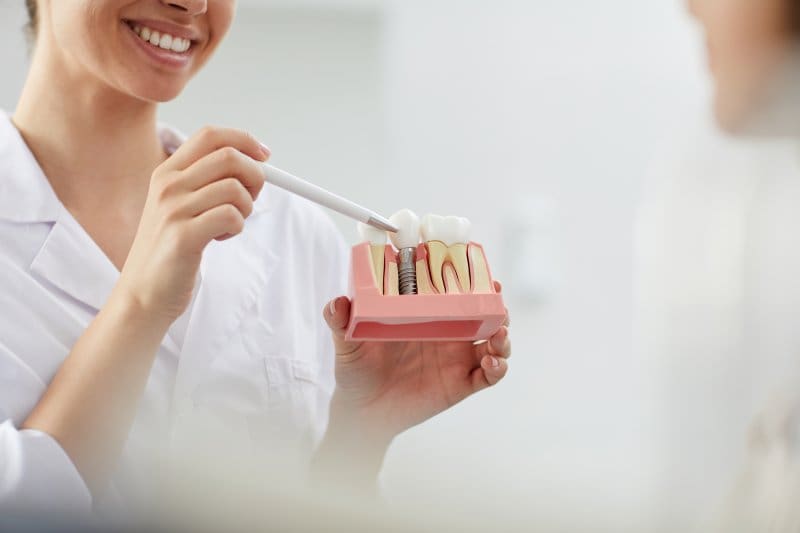Patients who receive dental implants may require these permanent prosthetics because of poor oral hygiene. If dental decay is the reason tooth loss occurs in the first place, there may be some concern about these new teeth being vulnerable to cavities in the future. Keep reading to find out why there is no need to worry about these long-lasting implants becoming decayed.
<! –more–>
Are Dental Implants at Risk of Developing Cavities?
No, dental implants can’t develop cavities. Because they are made from artificial materials, they are not porous like regular tooth enamel. Not only are they more stain-resistant than natural teeth, but harmful bacteria cannot penetrate and lead to dental decay.
However, if you have any healthy teeth remaining, it’s important to remember that they are still vulnerable and can be susceptible to cavities. This is why it’s imperative to maintain good oral hygiene when choosing to receive dental implants.
Are There Other Oral Health Problems That Can Occur?
Gum disease is a common oral health problem that can arise while wearing dental implants. Generally referred to as peri-implantitis, this harmful infection can attack the soft oral tissues around your prosthetics, causing them to loosen while also weakening the underlying jawbone.
Without proper dental hygiene and regular checkups and cleanings, your smile can be negatively impacted by cavity-causing bacteria and harmful gum disease, both of which can lead to a costly investment should it need to be fixed.
What Are Some Ways to Protect Dental Implants?
While wearing dental implants, you will need to make sure that you stay on top of your oral hygiene routine. Brushing twice each day for two minutes is essential. You’ll need to use a soft-bristled toothbrush to avoid damaging the material, as other products can be abrasive, causing scratches to form.
Flossing between your implants is also necessary to make sure no bacteria form and cause gum disease.
Also, eating a diet that consists of valuable nutrients (i.e., proteins, calcium, vitamin D, A, C, and others) can help protect your natural teeth and gums from cavities and infection.
By adopting these habits and committing to taking better care of your smile, you can expect your dental implants to last while also enjoying the benefits of maintaining healthy, natural teeth.
About the Practice
Our five dental experts who specialize in prosthodontics and periodontics at Weston Dental Specialists Group offer dental implants as a reliable tooth replacement solution for anyone suffering from missing teeth. Designed to last a lifetime, they allow patients to enjoy life in a new and exciting way. While these prosthetics cannot develop decay or cavities, they can be impacted by gum disease, which is why our team is here to offer solutions to maintain healthy smiles at home. Contact us via our website or by calling (781) 531-9552 if you would like to learn how to better care for your real and artificial teeth so they’ll last longer.


